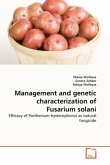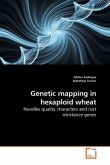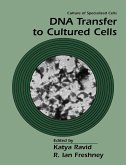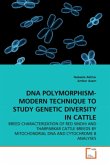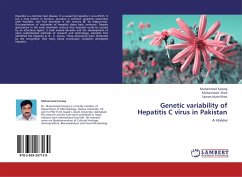No study on DNA typing of cattle has been conducted in Pakistan. DNA typing of cattle is necessary to overcome the problems like forensic cases, sale & purchase, individual identity in case of fertilization by more than one male and ownership disputes. Microsatellite markers have been proved as an efficient and powerful tool for breed characterization of cattle. In this study, a panel of microsatellite markers, having high polymorphism information content (PIC) values, was developed. Blood samples were taken from jagular vein of two breeds of cattle (Tharparkar and Red Sindhi). DNA was extracted by Inorganic method. Primers of labeled microsatellite markers were optimized for successful amplification conditions in the Bio-Rad thermocycler. Multiplex PCR was performed, for amplification of these labeled microsatellite markers.Results of this study lead to development of a panel of 19 microsatellite markers which can be used for breed characterization of cattle. This was a preliminary study on two cattle breeds in Pakistan. This facility can be provided on commercial basis to owners. Moreover this study can become the basis for further research investigations on cattle.
Bitte wählen Sie Ihr Anliegen aus.
Rechnungen
Retourenschein anfordern
Bestellstatus
Storno


